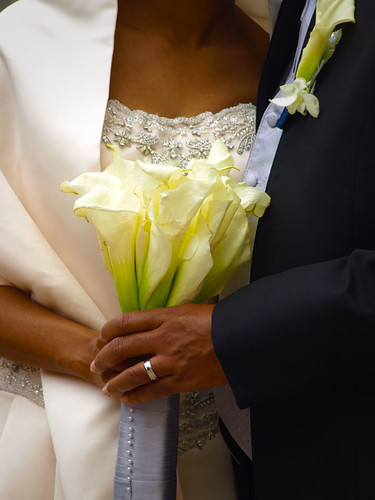Kay S. Hymowitz has written
a fascinating article for the Wall Street Journal Online about the trend we are seeing of men that seem to be intentionally delaying adulthood by avoiding marriage and parenthood until much later in life.
Hymowitz quotes comedienne and author, Julie Klausner:
"We are sick of hooking up with guys," writes the comedian Julie Klausner, author of a touchingly funny 2010 book, "I Don't Care About Your Band: What I Learned from Indie Rockers, Trust Funders, Pornographers, Felons, Faux-Sensitive Hipsters and Other Guys I've Dated." What Ms. Klausner means by "guys" is males who are not boys or men but something in between. "Guys talk about 'Star Wars' like it's not a movie made for people half their age; a guy's idea of a perfect night is a hang around the PlayStation with his bandmates, or a trip to Vegas with his college friends.... They are more like the kids we babysat than the dads who drove us home." One female reviewer of Ms. Kausner's book wrote, "I had to stop several times while reading and think: Wait, did I date this same guy?"
Hymowitz goes onto identify that ambiguous stage of life that more and more men are occupying for longer periods of time -- pre-adulthood. Those classified in the pre-adulthood stage are males that may be post-college age-wise (mid 20's and up), but are living life fundamentally no differently than they did while in their teens or early 20's. (If you're having a difficult time envisioning this, picture Adam Sandler in nearly any movie that he has ever been in.)
How could this be a problem? Well, if you're a single women that is looking for a man who you can settle down and start a family with, it may seem like slim pickings when examining the field. For most women, the ideal potential husband probably has showered within the last 24 hours, does not regularly go out with "bed head", and doesn't occupy a job that could easily be filled by a fifteen year old high school student. A pre-adult doesn't fully understand that adulthood not only brings with it independence from one's parents but also responsibility to be a productive member of society.
For the pre-adult male that is perpetually stuck in a state of "21-ness", marriage and family could be the last thing on his mind. Hymowitz comments further:
"Unlike adolescents, however, pre-adults don't know what is supposed to come next. For them, marriage and parenthood come in many forms, or can be skipped altogether. In 1970, just 16% of Americans ages 25 to 29 had never been married; today that's true of an astonishing 55% of the age group. In the U.S., the mean age at first marriage has been climbing toward 30 (a point past which it has already gone in much of Europe). It is no wonder that so many young Americans suffer through a "quarter-life crisis," a period of depression and worry over their future."
In many ways, I have a hard time relating to men that live life well into their 30's and 40's without any plans to marry and have children. Fairly early on during my time in college, I began praying about whether I thought God would want me to get married and prayed specifically about the type of woman that I would want to marry. When I believed I had met her, I didn't waste any time. I met my now-wife when I was 24 and married her shortly after I turned 25 (we were wed less than a year after meeting). We had our first three children by the time I was 30. Needless to say, if there was any boy left in me, I was forced to grow up due to the responsibilities inherent in being a husband and father.
Mark Driscoll, a pastor in Seattle, wrote
a controversial article on this very topic several months ago. In the article, Driscoll pulls no punches as he describes these pre-adult men as "boys who can shave." Look at some of what he had to say:
"What happens if you walk into the church and try to find out what a man looks like? First of all, you're not going to find a lot of guys in most evangelical churches. The least likely person to see in church is a single, twenty-something male. He is as rare at church as a vegan at a steak house.
In the world, boys who can shave are children who are consumers. In the church, boys who can shave are cowards who are complainers.
A buddy of mine calls them evangellyfish because they have no backbone. They don't declare a major, church, theology, or fiancé. They don't want to fail and they think if they don't try, then they can't fail. And by definition, that's a failure.
They are, however, endowed with the spiritual gift of complaining. They say, "I hate the church. The church just wants my money." As if the church wants his futon, Xbox, light beer, and computer filled with free Internet porn.
Here's the cold hard truth: it's a lot harder to do something than it is to complain about those who are doing something. The notorious sin of Christian guys is complaining about guys who are doing something rather than doing something."
While Driscoll's words certainly are pointed, I have to admit that I agree with much of what he has to say. Boys are tentative, irresponsible and wait for others to do things for them. Men take initiative, willingly accept responsibility and gladly call others to follow them. But does this mean that Christian men that wait until later in life to marry are in sin?
First, there is no age that the Bible states when a man should marry. Throughout history men have generally married at a variety of ages, depending upon the era and culture in which they lived. So I don't think there is a "right" age for all men to seek out marriage.
Second, marriage is not for everyone. There have been some great men throughout history (both Jesus Christ and the Apostle Paul come to mind) that did not marry because they felt they could serve God more faithfully without the responsibilities of marriage. So a man that feels called by God to a single and celibate lifestyle for the sake of the gospel should be applauded.
Third, there are men that desperately want to get married and God has just not brought the right woman across their path. They are committed to living a God-honoring lifestyle and are not willing to compromise their convictions just because they have a desire to get married. These men, too, should be admired and esteemed.
However, I think that the trends show that there is an increasing number of Christian men that are prolonging marriage because they simply don't want to accept the responsibilities that come with having a wife and, possibly, children. It is not that they feel called to singleness or aren't interested in women, they simply don't want to grow up and move on to the next stage of life.
Being a husband and father forces us to grow up and truly live as men and that scares a lot of guys. These "boys who can shave" realize that having a wife will mean that they will be responsible to and for someone else and that is intimidating. It means they will not just be living for themselves anymore but will need to take someone else into account.
But their passivity affects others whether they realize it or not. There are literally millions of godly, available women that are searching for a husband in a world seemingly made up of boys. I know of too many women that are waiting for a man of initiative to pursue them yet the single men that they interact with are too busy playing video games and hanging out with their buddies.
It can grow wearisome for Christian women to wait for years for a godly man to pursue them and settle for any nice guy that shows an interest in them. My advice to women is to not settle when it comes to your dating relationships and the choice of a husband. If you want to be married to a man, don't date a boy.
For the men out there, Driscoll has this advice:
"Men, you are to be creators and cultivators. God is a creator and a cultivator and you were made to image him. Create a family and cultivate your wife and children. Create a ministry and cultivate other people. Create a business and cultivate it. Be a giver, not a taker, a producer and not just a consumer. Stop looking for the path of least resistance and start running down the path of greatest glory to God and good to others because that's what Jesus, the real man, did."








